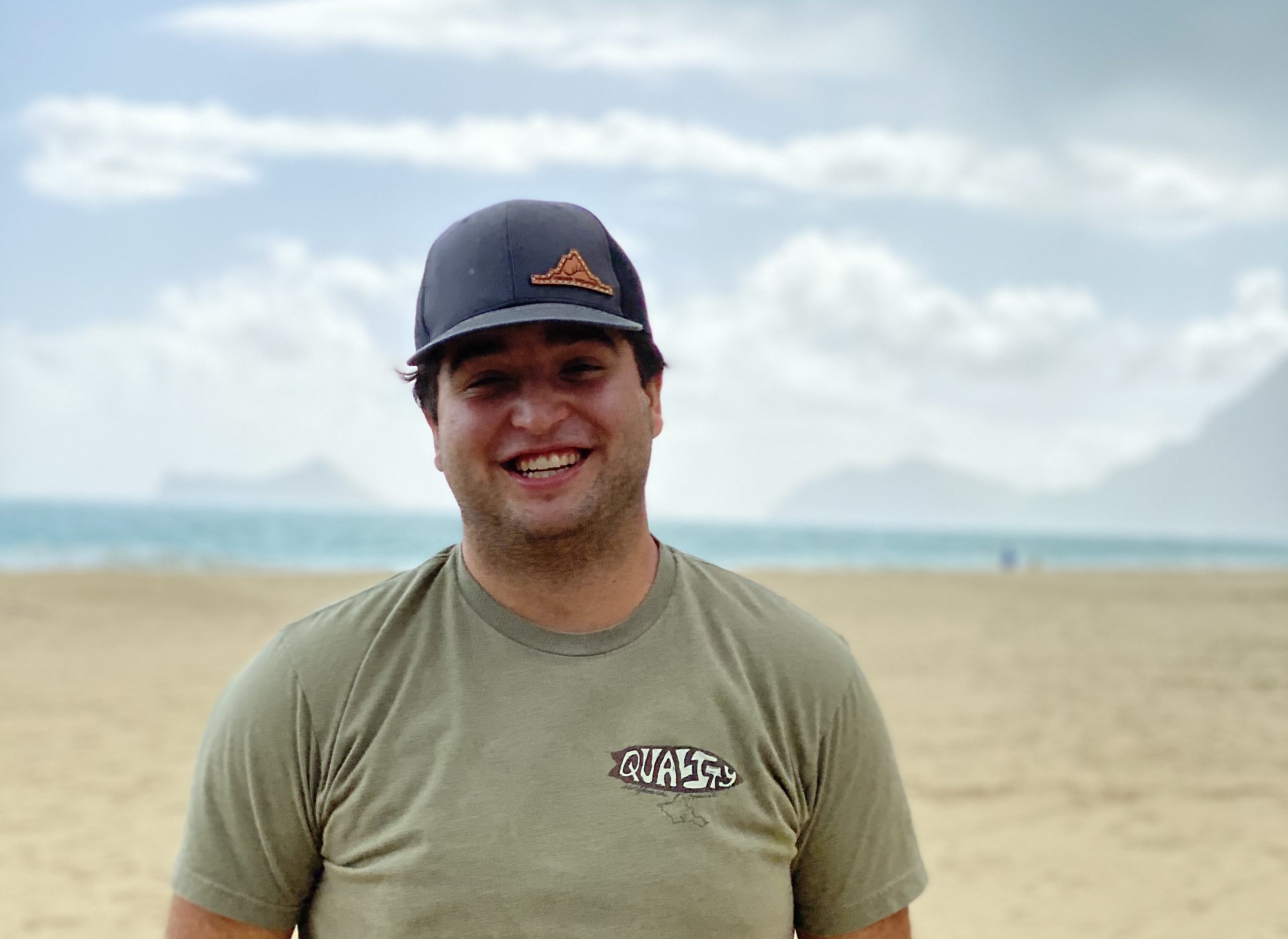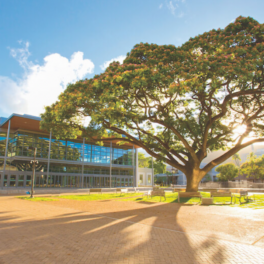SOEST undergraduate helps advance clean energy technology
 Jacob Vasquez, GES undergraduate student
Jacob Vasquez, GES undergraduate studentWhen he initially came to the University of Hawai‘i at Mānoa, Jacob Vasquez enrolled in the pre-engineering program. After learning about the Global Environmental Science (GES) program in the UH Mānoa School of Ocean and Earth Science and Technology (SOEST) and seeing that the courses were so closely aligned with his interests, Vasquez saw a new academic path for himself.
As a high school student in Grover Beach, California, Jacob Vasquez secured a job at a land surveying and engineering consultant firm.
“I have always been extremely interested in renewable energy and energy infrastructure, transportation systems, urban planning, and physical oceanography,” said Vasquez. “My job in high school was a great step toward seeing what the field of engineering is really like.”
Prompted by a recommendation from the chairperson of the GES program, Michael Guidry, Vasquez reached out to Godwin Severa, assistant researcher at the Hawai‘i Natural Energy Institute in SOEST, to inquire about available research opportunities.
Vasquez now works in Severa’s laboratory where they will be testing specialized materials that capture atmospheric acidic gases that can pass through and impact the efficiency of fuel cells as they generate clean energy. To improve air purification technology, Vasquez will analyze the capacity for various materials to absorb gases such as carbon dioxide, hydrogen sulfide, nitrogen dioxide and sulfur dioxide.
“Although the undergraduate thesis requirement was a bit intimidating, it’s also very exciting because of the level of experience I am attaining from the whole process,” said Vasquez. “I think the most satisfying aspect of my research is that it is contributing to fuel cells which is a growing industry for the energy and vehicular fields. It is also rewarding because fuel cells are such a great clean alternative compared to the other energy and transportation systems.”
Vasquez will graduate in fall 2022 and plans to apply to internships and jobs related to his interests in natural energy, transportation, and physical oceanography.
More on the GES Program
The GES program, administered by the Department of Oceanography, trains high-quality, passionate students to be knowledgeable in Earth-system science and to think creatively about the challenges facing communities and natural resources now and in the future. As a GES degree requirement, each student is guided by a faculty mentor and performs original scientific research, writes a research thesis and presents their findings publicly. Mentors include SOEST faculty, global leaders in the fields of ocean, earth and space science, as well as technology. Throughout the GES degree program, students are engaged in fieldwork, laboratory work, and field trips, and can participate in research projects on deep ocean and coastal research vessels.


